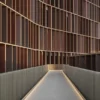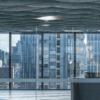The best discounts this week
Every week you can find the best discounts here.
Soundproof Your Apartment: A Practical Guide for City Living
Understanding the Sources of Noise Pollution
City living offers unparalleled convenience, but often at the cost of peace and quiet. Noise pollution from traffic, neighbors, construction, and even street performers can significantly impact your quality of life. Before tackling soundproofing, it’s crucial to identify the primary noise sources. Is it low-frequency rumble from traffic, high-pitched sounds from conversations, or a combination of both? Pinpointing the source will inform your soundproofing strategy. Consider keeping a noise diary for a week, noting the time of day, the type of noise, and its intensity to gain a clearer understanding.
Assessing Your Apartment’s Acoustic Vulnerabilities
Once you’ve identified the noise culprits, it’s time to examine your apartment’s acoustic vulnerabilities. Are there gaps around windows and doors? What is the construction of your walls and floors? Thin walls and single-pane windows are notorious for poor sound insulation. Inspect your apartment thoroughly, paying close attention to potential sound leaks. A simple test involves standing in a quiet room and listening for sounds emanating from outside. Note the locations of these sound leaks to prioritize your soundproofing efforts.
Effective Soundproofing Solutions for Apartments
Soundproofing an apartment doesn’t require a complete renovation. Several practical solutions can significantly reduce noise levels without breaking the bank. These can be broadly classified into three categories:
Window Treatments:
Double or triple-glazed windows are highly effective at blocking outside noise. If replacing your windows isn’t feasible, consider installing heavy, sound-absorbing curtains or drapes. These act as a barrier against sound waves and can noticeably reduce noise levels. Adding weatherstripping to existing windows will seal gaps and prevent sound leakage.
Door Solutions:
Solid-core doors offer superior sound insulation compared to hollow-core doors. If you have a hollow-core door, consider adding a soundproof door sweep to seal the gap at the bottom. A weatherstrip along the edges will further enhance sound insulation. A secondary door added to the existing frame can significantly reduce sound transmission.
Wall and Floor Treatments:
For walls, consider applying sound-dampening materials like acoustic panels or mass-loaded vinyl (MLV). These materials absorb sound waves, effectively reducing noise transmission. For floors, area rugs and thick carpets can absorb impact noise from footsteps and other activities from above. Floating floors, which are installed on a resilient underlayment, are a more significant investment but provide excellent sound insulation.
Beyond the Basics: Advanced Soundproofing Techniques
For more persistent noise problems, more advanced techniques may be necessary. These include:
Decoupling:
This technique involves separating structural elements to reduce sound transmission. For instance, decoupling drywall from the wall studs can significantly improve sound insulation.
Green Glue Damping Compound:
This specialized compound is applied between layers of drywall to dampen vibrations and reduce sound transmission.
Acoustic Sealants:
These seal gaps and cracks, preventing sound leakage around windows, doors, and electrical outlets.
Choosing the Right Soundproofing Materials
The market offers a wide variety of soundproofing materials, each with its own strengths and weaknesses. When choosing materials, consider factors like:
* **Sound Transmission Class (STC) Rating:** This rating indicates a material’s ability to block sound. Higher STC ratings indicate better sound insulation.
* **Cost:** Prices vary significantly depending on the material and its thickness.
* **Ease of Installation:** Some materials are easier to install than others.
* **Aesthetics:** Consider the visual impact of the materials on your apartment’s décor.
Conclusion: A Quieter, More Comfortable Apartment
Soundproofing your apartment can be a rewarding project, transforming your living space into a haven of peace and tranquility. By understanding the sources of noise, assessing your apartment’s vulnerabilities, and implementing appropriate soundproofing solutions, you can significantly reduce noise pollution and enjoy a more comfortable and peaceful city living experience. Remember to always prioritize safety and consult with a professional if you are undertaking significant structural modifications.





